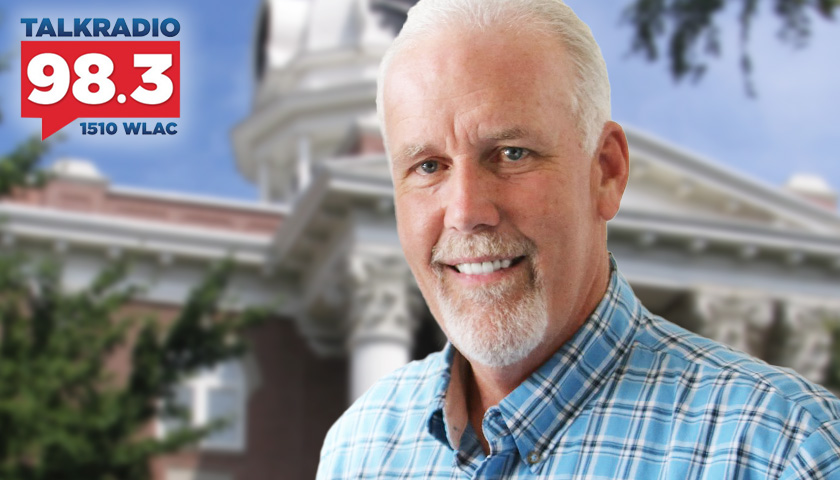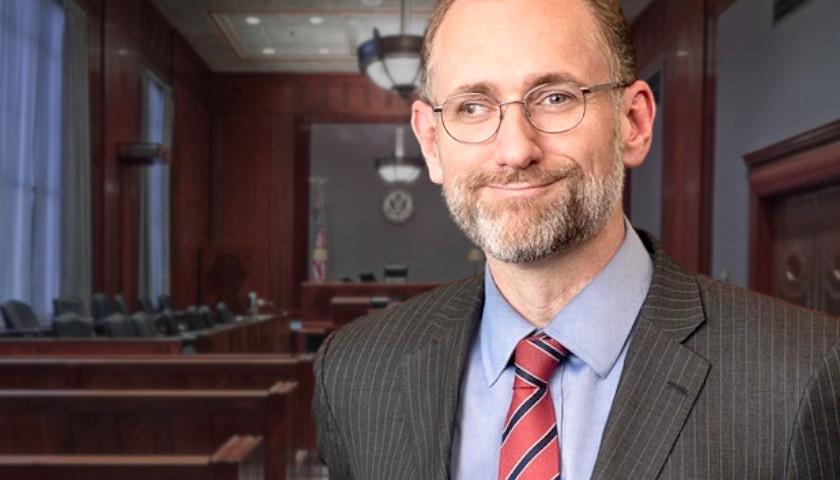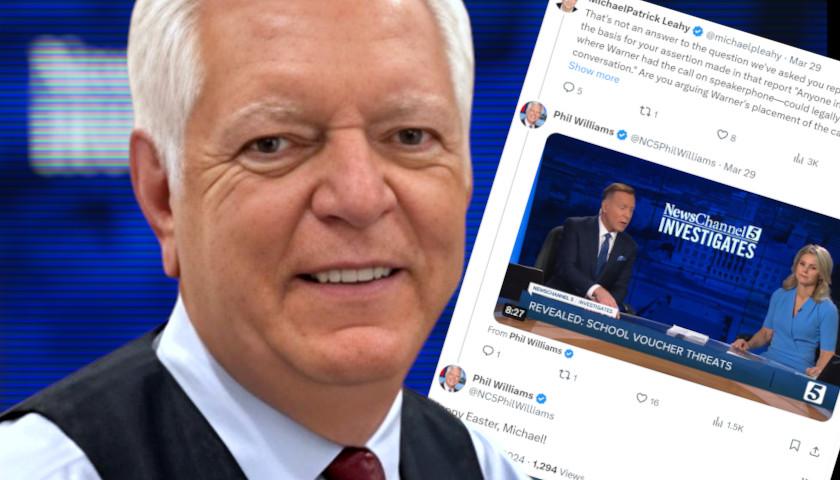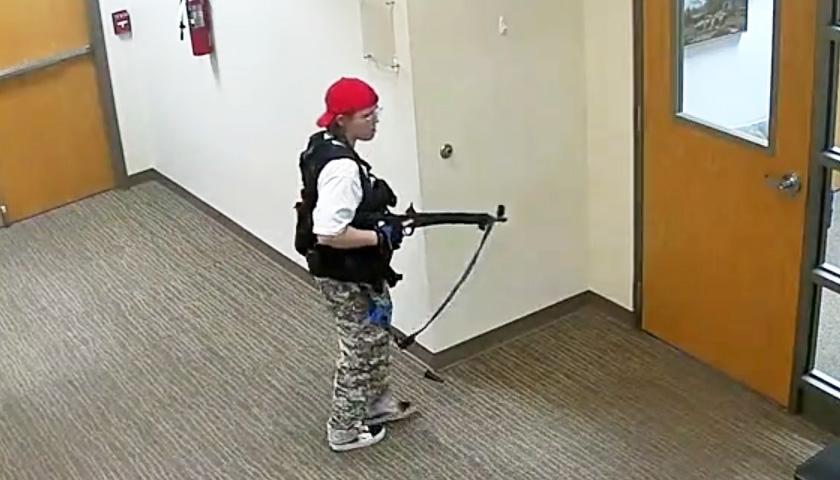Live from Music Row, Wednesday morning on The Tennessee Star Report with Michael Patrick Leahy – broadcast on Nashville’s Talk Radio 98.3 and 1510 WLAC weekdays from 5:00 a.m. to 8:00 a.m. – host Leahy welcomed Rutherford County Mayor Joe Carr to the newsmaker line to explain the details of the proposed 2023 Property Taxpayers Protection Act.
Leahy: We are joined on our newsmaker line by a very good friend, the mayor of Rutherford County, Mr. Joe Carr. Good morning, Mayor Carr.
Carr: Michael, how are you doing this morning?
Leahy: Joe, I was just recollecting, it was about 10 months ago when you sat in studio here with us, and you told me that the polling showed you would be elected mayor of Rutherford County. And I said, really? And guess what? You were right. Congratulations, Mayor Carr.
Carr: Thank you, Michael. I appreciate it. It’s an honor to do this as it was an honor to serve in the General Assembly and like it was an honor to run in 2014 against Lamar. You and I have had a lot of memories together, and I appreciate your friendship, and more importantly, I appreciate what you do on behalf of constitutional conservatism in Tennessee.
Leahy: We’ve been friends for about 10 years now. We first met when I started this little political action committee called Beat Lamar. And you were the guy that we endorsed to run against Lamar and did a very great job. Missed it by that much back in 2014 but now serving as the mayor of Rutherford County, one of the largest and fastest-growing counties in the state. Three hundred forty thousand people live in Rutherford County now.
Carr: Let me correct you. According to the U.S. Census estimate of April 2022, we are 362,000. And by this time next year, according to that same census estimate, we will be the fourth largest county in the state, larger than Hamilton County, of course, which is home to Chattanooga.
Leahy: It’s just big. It’s growing, it’s thriving. And you are in the news. You have an interesting proposal. It’s called the 2023 Property Taxpayers Protection Act. It’s a little bit in the weeds, but I know you can get a little bit wonky tell us what this is about Joe.
Carr: A little history real quick. The passage originates in 2006 with Speaker Jimmy Naifeh in one of his smoke field room deals with special interest groups, in particular the home builders. And they’re not the enemy here, but they were the beneficiary of what at that time was the passage of the County Powers Relief Act, which really provided no relief.
But what that bill essentially did when it passed No Six, was it limited the county’s ability to pay for growth by using what’s called the facilities tax. At the same time, it empowered or codified the ability of the cities to pay for that same or fund that same growth by a number of different means, specifically impact fees.
So, Jimmy Naifeh’s legislative efforts, along with the Tennessee Home Builders, basically picked winners and losers. And the winners, in this case, were the cities because they got a suite of financial tools by which they could finance and pay for their growth. And the counties were limited in trying to do the same thing.
So our 2023 Property Taxpayers Protection Act is an effort to protect property taxpayers because that’s the last resort for counties to pay for growth is to raise property taxes.
And unfortunately, many property taxpayers, when they have their property taxes raised to pay for growth, receive no benefit for the funding of that growth. And we’re saying, ostensibly, like the cities, those who need the growth should pay for the growth, and that’s what our bill would do.
Leahy: It seems like common sense to me. Joe. It’s sort of like clean-up on aisle three, right? It’s kind of an administrative tax cleanup. And as you know, if you are in a county like Rutherford County, where a lot of the growth is coming outside of the cities, that is a huge financial burden for the counties.
Tell us, Joe, obviously requires a passage of a law by the Tennessee General Assembly today. It’s January 25th. As I understand it, bills must be introduced to the Tennessee House by January 31st, and I think it’s a little bit later in the State Senate by February 15th. Do you have someone introducing this bill, or is there a mechanism to get this on the floor?
Carr: Absolutely. We’ve got several House members and a couple of Senate members who are willing to sponsor this legislation. Obviously, we’re going to put our best foot forward, and we’ve already filed one caption that would help us out, consider help us out in moving this bill forward, and we will be filing additional legislation as well.
The lobbying team that Rutherford County and Maury County have employed are doing an excellent job on behalf of all counties. And I want to reiterate this, under current Tennessee law, cities and counties are held to two different standards, and these standards don’t equal how they pay and fund this growth.
This isn’t about being against homebuilders. As a matter of fact, homebuilders agreed with this concept of allowing cities a set of financial tools. We’re just now asking the General Assembly to correct a wrong that was made in 2006 that allowed counties the same set of tools that they have afforded the cities. Yes, we will have sponsors at the appropriate time.
Leahy: When you say caption, basically this is a mechanism by which a caption bill is a bill filed within a general category, and that later during the session, the specific details of that bill are filled in. Do you have that right?
Carr: That’s exactly right. So we file a caption and we open up the code of a particular part of the Tennessee law, and when we open that up, then we amend exactly what we want the bill to do. And we will get into the process of actually writing the bill once we have filed the necessary caption as the appropriate placeholder for the amended bill.
Leahy: Now, I noticed that a number of county mayors are supporting this bill. County Mayor of Maury County Sheila Butt, who also served as you did in the Tennessee House of Representatives for some time, you guys were elected in August and you took office in September. Both of you support this. As is Sumner County’s new mayor, John Isbell. And I think Jeb Matheny from Coffee County is also in favor of this?
Carr: Thank you for bringing this up, Michael. This is really important. We’ve got mayors from all across the state. We got the Haywood County Mayor in West Tennessee, mayor David Livingston. We’ve got Knox County Mayor Glenn Jacobs who has been extremely helpful in East Tennessee.
And of course, we’ve got Middle Tennessee, Mayor of Coffee County, Jeff Matheny, Maury County Mayor Sheila Butt, and Sumner County Mayor John Isbell, myself, and Rogers Anderson of Williamson County. And so we have a number of mayors all across the state that have heard about this, because I’ve been traveling the state trying to get the word out, and I have yet to hear from a county mayor that has said, no, this isn’t a good idea.
Indeed, we’ve heard this from several city mayors that like the idea as well, because it removes the competition between mayors in their own communities for financial dollars to fund growth.
Listen to today’s show highlights, including this interview:
– – –
Tune in weekdays from 5:00 – 8:00 a.m. to The Tennessee Star Report with Michael Patrick Leahy on Talk Radio 98.3 FM WLAC 1510. Listen online at iHeart Radio.
Photo “Joe Carr” by Joe Carr. Background Photo “Rutherford County Courthouse” by BrentandMariLynn. CC BY 2.0.








